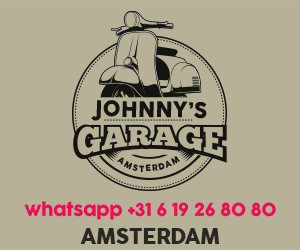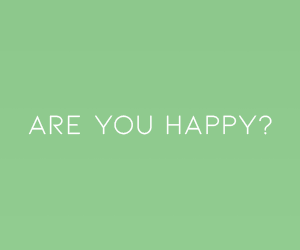
If you are already a student in the Netherlands, then you know the most of the stuff that follow. But, if you are one of those students that are planning to study in the Netherlands, then you absolutely need to keep reading! Here are some useful tips and advice that can make your life here easier and your time well spent!
The basics...
Burgerservicenummer (BSN), is the Dutch version of social security number. You will need to get one.
DigiD, is your digital ID. DigiD makes it possible to verify your identity, and/or prevent other people from trying to pass themselves off as you.
Debit card, is a plastic payment card that provides you with electronic access to your bank account. It is the most used way of payments in the Netherlands.
Getting a BSN and a DigiD
If you intend on living in the Netherlands for more that 4 months, then you have to go to your local Gemeente (city hall) and register in order to get a BSN number. BSN has many uses, and is sort of, like the AMKA number we have in Greece. The procedure is quite simple and you just have to bring a copy of your passport, a legalized copy of your birth certificate (if you don't have one, you can provide it later on usually) and a proof of residence in the Netherlands, like your rent contract or the papers/documents that you can get from your university.
Everyone who is registered with a Dutch municipality can apply also for a DigiD code. It is very simple to apply, just go to the DigiD website.
Opening a Dutch bank account
Setting up a bank account in the Netherlands may be a hardship if you don't do it as soon as possible. Because the procedure takes a while, you can start the procedure and submit the application form before you travel to the Netherlands, so the account can be activated as soon as you arrive. In some banks, proof of registration at the city hall (BSN-number) is not required immediately, but you will need to submit it within 2 months after activating the account.
The documents you should have are a valid passport or other form of identification, proof of enrollment at the EUR and your BSN, if it is already available.
A Dutch account and debit card will help you in your day-to-day activities by making it easier and more convenient to pay for things such as food, transport, living, utilities, insurance and other bills. Plenty of Dutch universities collaborate with the three leading banks of the Netherlands, and it’s very likely that your university does as well. It is possible that your university can conduct the whole procedure of opening an account for you by itself; you just need to provide the required documents to your university in order for an account to be opened. Check it out!
Applying for health insurance
Health care is not FREE in the Netherlands. You have to get insured immediately, otherwise there are penalties! There are various of insurances you can have, but the basic health insurance which covers any medical costs during your stay will cost between 80 and 120 euros.
As an EU student, you are most likely covered for a temporary stay in the Netherlands by the health insurance scheme in your home country. Please check this before you arrive and remember to request your EU health insurance card. Check it out and also download the app for your European Health Insurance Card if you have a smartphone.
Getting yourself a house
Holland does not have a tradition of on-campus accommodation. Most students live in or near their university town. Make sure you start looking for a room as soon as possible, because housing is one of the biggest problems in the Netherlands.
At first, make sure you check at your university whether they can arrange a room. To share with other students the shower, toilet, kitchen and living room, is very common in the Netherlands. An average room in Holland costs somewhere between €300 to €600 a month.
And now, pay attention!! Before you take on a room, make sure you check what bills are included in the rent, as this may have a large impact on your budget. If the price is “inclusive” most of the times it includes gas, electricity, TV, Internet connection & the annual tax for the house. Make sure you read your rental contract before signing it and also make sure that the room you just rent exists and is not a scam.
If you need furniture, you can take a look at Marketstuff, a website where students can buy and sell furniture and other second-hand goods like bikes, household equipment and text books.
For rooms and in general for housing you can check DUWO Foundation, the oldest student housing with more than 60 years experience and leases of 25,000 rooms and resident students in Amsterdam, Delft, The Hague & Leiden.
Getting yourself a job
If you want to work during your studies, you have a lot of selections. At first, you need a permit and you can only work for a maximum of 10 hours a week or, instead, you can work full-time during the summer months June, July and August.
Your employer needs to apply for a work permit for you. Check UWV Werkbedrijf, the organisation that decides on work permits.
Get yourself a bike
The first thing you notice when you arrive in the Netherlands is the thriving bike culture. A bike is the way to solve a lot of your problems, as it is definitely the easiest and most convenient mode of transportation available. Don't worry! You will never get tired, as the only hills in the Netherlands are in the shape of a bridge. The only thing to be careful with is avoiding buying a bike from someone on the street, as those bikes tend to be stolen and sold illegally.
Explore the Netherlands using an OV-chipkaart
Once you've got your bike, you can start exploring the beautiful Netherlands. In order to do so, you are advised to apply for an Ov-chipkaart, which is the card used for traveling via trains, buses, metro and trams. You are also able to buy an OV-chipkaart that includes a 40% discount. Now, you are ready to enjoy all that Netherlands can offer and take your bike along as well (with an extra ticket).
Museums? Get a museumkaart!
There are several amazing museums of every kind (history, art, nature, etc.) all over the big cities of the country. The only thing to do if you are a museum lover is to get yourself a museumkaart. You only have to pay for the cost of the card and then, you are free to visit almost every museum in the Netherlands with no extra costs. Cool!
Extended information for Greek Students
If you still have questions and need more information, you can always join the Hellenic Student Society Netherlands on Facebook. It is a group made by Greek and Cypriot students that helps students in the Netherlands but also a great way to keep track of what is going on with student life in the Netherlands. You can find and read, useful and up to date material about studying here, in Greek, at their official website.



